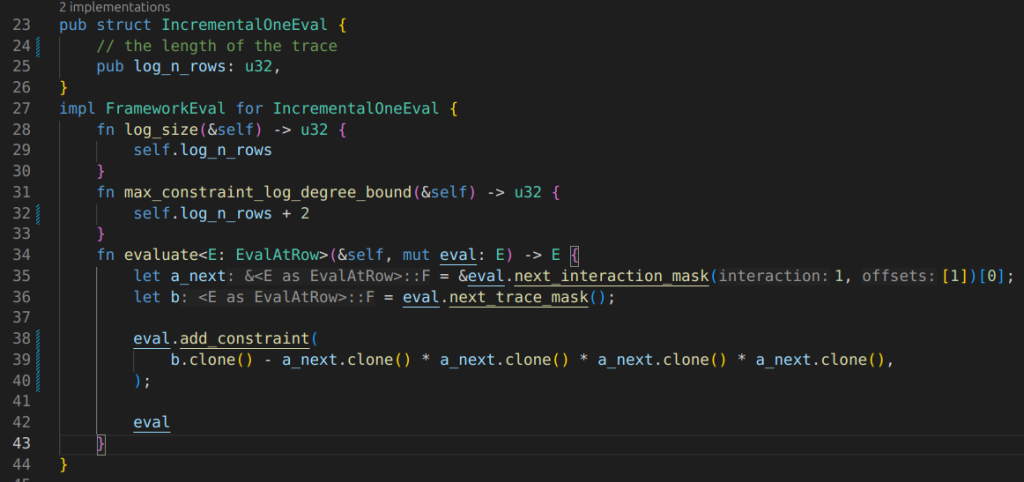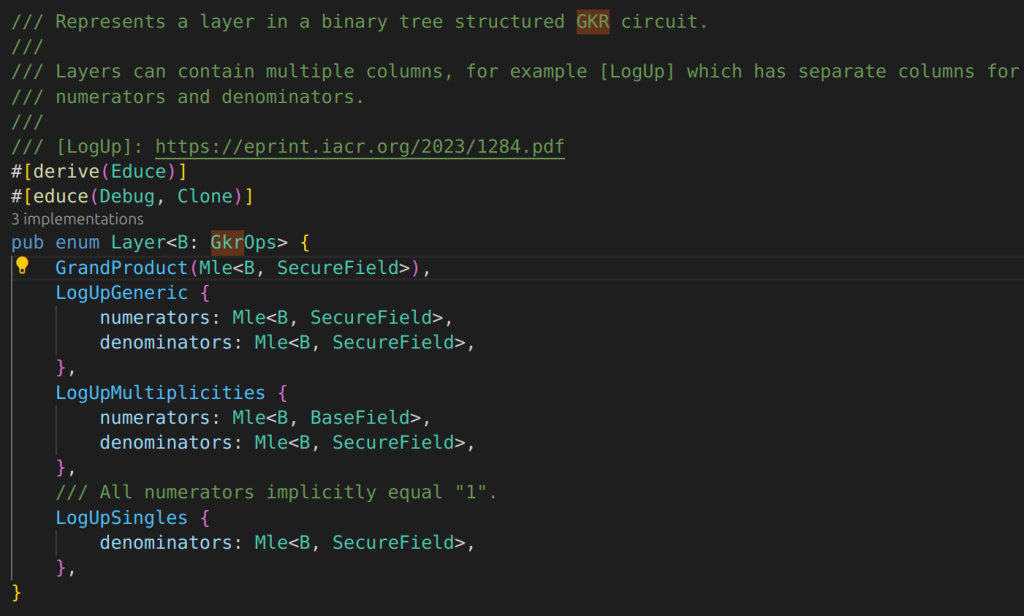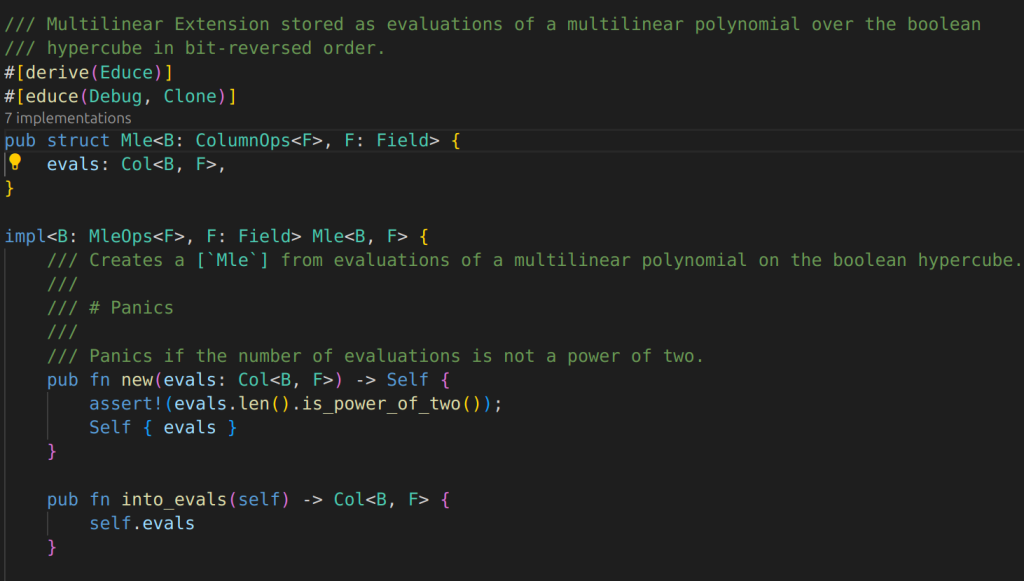IOP: prove evaluation of a multi-linear extension polynomial
a cyclic group in base Field \( \mathbb{H} \) (STARK trace domain)
base Field \(\mathcal{F}\)
4th degree extension of base Field, Secure Field \(\mathcal{SF}\)
\(a(w)\) is a univariate polynomial of degree \(2^d\) (STARK trace), \(w\in \mathbb{H}\)
\(f(b_0,b_1,…,b_d)\) is a multi-variate function (STARK …




